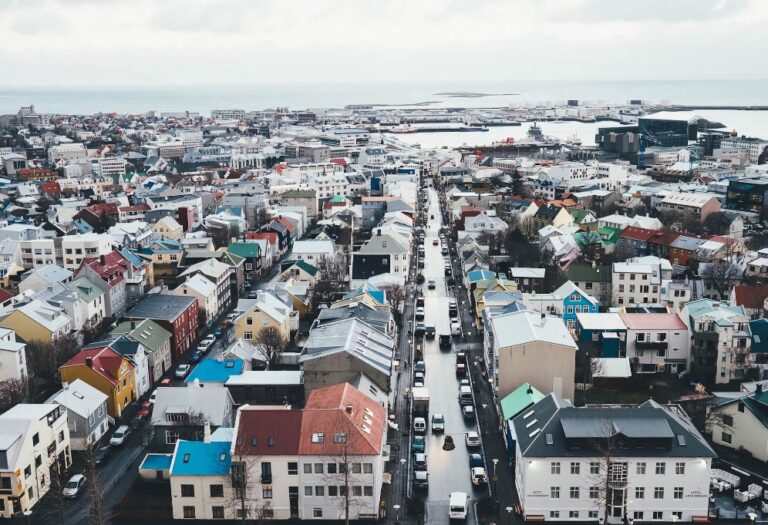The “safest countries in the world” is not just a catchy phrase; it’s a significant assessment based on the Global Peace Index. Released annually by the Institute for Economics and Peace (IEP), this index is a comprehensive tool that evaluates the safety and peacefulness of countries worldwide. The 2023 edition offers the latest insights into which nations are the safest to live in.
Table of Contents
Criteria for ranking the safest countries in the world
Determining the safety of a country involves analyzing various factors, as outlined by the Global Peace Index. These include the number of violent deaths, the impact of terrorism, nuclear capability, conditions of peace, social security, internal conflicts, and international relations.
Interestingly, despite challenges like the war in Ukraine, EU/EEA countries continue to feature prominently in the rankings, suggesting a high level of safety within these regions. This year, seven EU/EEA countries are among the top safest countries, highlighting the value of EU citizenship for accessing these secure environments.
The safest countries in the world
1. Iceland
Crowned the safest country in the world, Iceland excels due to low homicide rates, minimal violent crime, and scarce small arms availability. Its stability extends to low natural disaster rates and strong gender equality policies, enhancing its safety for women. Besides safety, Iceland’s breathtaking landscapes of glaciers, hot springs, and waterfalls add to its allure.
2. Denmark
Ranked second in the Global Peace Index 2023, Denmark’s rise is attributed to its remarkably low crime rate, with only 127 homicides reported in 2018. Its robust economy and advanced welfare system reduce inequality and social unrest. A homogeneous population in a small country further aids in maintaining peace and order.
3. Ireland
Holding the third spot for the safest countries in the world, Ireland boasts an exceptionally low murder rate, with just 33 murders in 2018. Its violent crime rate is one of the lowest in the European Union. Free from major conflict and terrorism, Ireland maintains a policy of military neutrality, not being a member of NATO. This peacefulness, combined with its rich history, makes Ireland a coveted destination.
4. New Zealand
Ranking fourth, New Zealand’s safety is underpinned by a small population, low crime rate, stable government, and minimal political unrest. Despite its susceptibility to natural phenomena like earthquakes and volcanic eruptions, strict building codes and preparedness measures mitigate these risks. New Zealand’s geographical isolation further shields it from external threats like war.
5. Austria
Austria, ranking fifth globally and third among EU countries, shines in safety due to several key factors. Its low crime rate, with rare violent and property crimes, creates a secure living environment. The strong Austrian economy curbs crime by providing stable incomes. Additionally, effective governance and minimal corruption contribute to Austria’s high safety standards.
6. Singapore
Singapore climbed to sixth place in 2023, becoming Asia’s safest country. Its safety is attributed to low crime levels, rigorous law enforcement, and zero-tolerance policies toward criminal activities. The Singapore Police Force is known for its efficiency in maintaining order. Strict gun control laws and culture respecting authority and law further enhance Singapore’s safety. The city’s cleanliness and orderliness add to the sense of security.
7. Portugal
Portugal, the seventh safest country in 2023, is noted for its stunning landscapes and safety. A key to its safety is the low level of income inequality, with a smaller wealth gap compared to countries like the U.S. Strong property rights, low government corruption, and a history of peaceful relations contribute to its safe environment.
Portugal’s D7 and Golden Visa programs offer accessible residency options, making it an attractive safe haven in Europe. Madeira, in particular, stands out as a safe spot due to its remote location, small population, absence of crime families or gangs, and strong police presence.
8. Slovenia
Slovenia, a small Central European country, ranks eighth in the world’s safest countries. Its low crime rates, with homicides significantly below the global average and minimal petty crime, are notable. Political stability, with a center-left government and EU membership since 2004, adds to the country’s safety. Slovenia’s geographical position, away from conflict zones and surrounded by Austria, Hungary, Croatia, and Italy, further contributes to its peaceful environment.
9. Japan
Japan, improving to the ninth spot globally, is renowned for its low crime rate. Stories of lost wallets being returned exemplify the country’s commitment to honesty and respect. With a murder rate of only 2.3 per 100,000 people in 2019, Japan’s safety is further bolstered by strict gun control laws and substantial investments in security measures like CCTV cameras. The ingrained cultural values of respect and peace significantly contribute to Japan’s overall safety.
10. Switzerland
Switzerland stands as the tenth safest country, credited to its stable economy, democratic governance, and low crime rates. Its long history of neutrality, avoiding war since 1815, plays a crucial role in maintaining peace. While Switzerland has high gun ownership, its stringent regulations ensure a low incidence of gun-related crimes. Swiss citizenship, though not part of the EU, offers extensive rights across the EU and EEA.
11. Canada
Ranking eleventh, Canada excels in the Global Peace Index due to its low crime rates, stable politics, and effective social systems. Its commitment to multiculturalism fosters unity and tolerance, reducing conflicts. Canada’s strong rule of law and efficient police force, coupled with a robust education system and social welfare programs, contribute to its safety. Canada’s international diplomacy and peacekeeping efforts further reinforce its peaceful status.
12. Czechia
Czechia, at number twelve, is celebrated for its safety, stability, and low crime and terrorism rates. It’s an ideal place for living, working, and tourism, with a strong infrastructure ensuring visitor safety. Features like well-maintained public transport, abundant police officers, and security cameras highlight Czechia’s dedication to safety. Strong gun control laws and NATO membership provide additional security layers in these uncertain times.












